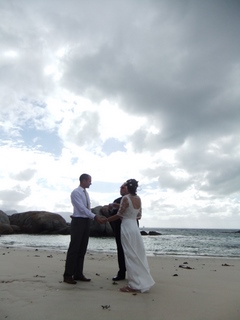First a word of warning, this will be the last blog, perhaps forever, so get some tissues at the ready, there won't be a dry eye in the house.
We left Africa on 15th October. And after a year of travelling the breadth of the earth, we flew back to England and then on to the wilds of Bovey Tracey, Devon. If Bovey Tracey sounds a little less exotic than say, Dar Es Salaam or Gabarone, that's because it is. In fact, it is almost certainly the least exotic place there is, and it was the perfect cushion to ease our fall back into everyday life and help us adjust. I should define what I mean by 'adjust', and in Bovey Tracey it meant to eat cake or pie or crumble or a heady mixture of all three. Fay's dad, now my father in law, has an obsession with collecting wild blackberries and baking pies. Delicious pies that are kept in huge numbers in the fridge and are available on demand. They should be called Pie+. So 'adjust' we did and 10 days later we squeezed ourselves into our new car and set off on the last leg of our world tour, from Bovey Tracey to ... Portslade, the town famous for coming second only to Port Talbot in the 2011 crap town awards.
And now it's a week later and it's Sunday evening. Worthing is the new Nairobi, Bognor Regis the new Sao Paulo. I've just ironed the same work shirts I was wearing before I left and packed my work satchel containing the same half used notebook. 'Tomorrow' is no longer an intriguing, enigmatic, unknown quantity. Tomorrow is Monday, and worse Monday morning, and I'll be back at work.
 The 'border'
The 'border' Zambia?
Zambia? The 'ferry'
The 'ferry' The other side
The other side








































